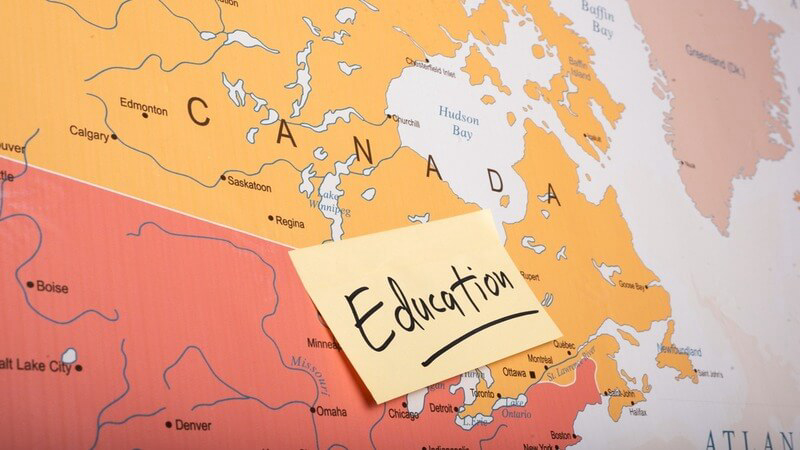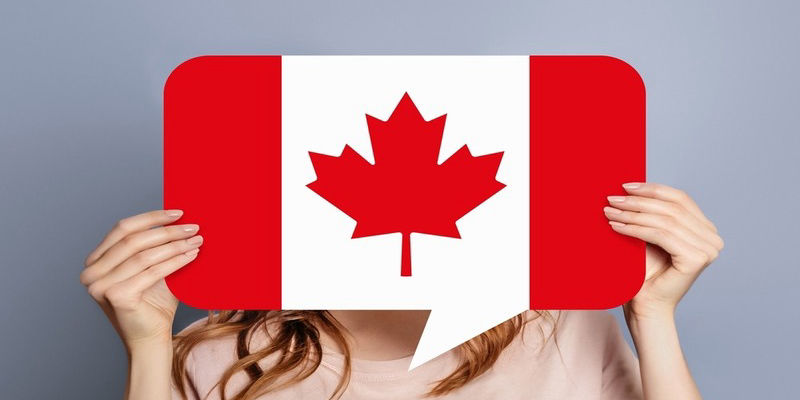There are many reasons why master’s studies in Canada are attractive to international students. From the welcoming environment and immigrant-friendly culture to the thriving economy and high quality of life, along with the well-established education system and prestigious universities, there is no shortage of high-quality Masters programs across the country for students worldwide to choose from. It’s no surprise that out of the 350,000 applications received for Masters studies in Canada, nearly 220,000 are from international students.
With 98 accredited universities, Canada boasts numerous institutions with impressive global rankings and Masters programs. These programs typically last 1-2 years (up to 3 years in some fields) and cost around CA$17,500. The academic year usually commences in September and concludes in April.
Each year, Canadian higher education institutions enroll 1.7 million students, contributing to research and generating 35 billion dollars in wealth. The government’s priority is to ensure a conducive learning environment for students’ well-being.
Masters in Canada
So, you've picked your Canadian dream school, city, and program? Awesome! Now it's time to tackle the application process. Most universities in Canada have similar requirements, but there can be some variations.
A bachelor's degree: This is a must-have for any Master's program.
Valid language test scores: You'll need to prove your English (or French, depending on the program) proficiency. This can be done through IELTS, TOEFL, Duolingo, or the Canadian-specific CELPIP test.
Tip: Check the university website for their exact score requirements. Don't just aim for the minimum!
Other application requirements you might need:
- Official translations: Get your bachelor's degree (and any other relevant transcripts) translated if they're not already in English or French.
- Transcripts: Show off your academic achievements with official transcripts from your previous studies.
- GPA: Most universities look for a GPA above 3.0 (on a 4.0 scale) or its equivalent.
- Passport scan: They'll need to see your ID.
- Application form: Fill out the online application form carefully.
- Portfolio (optional): If you're applying to an art program, showcase your talent with a portfolio.
- Recommendation letters: Strong letters from professors can boost your application.
- Motivation letter: Explain why you're passionate about this program and what you hope to achieve.
- Application fees: Make sure you pay the application fee by the deadline.
- Proof of funds: Show the university you can financially support yourself during your studies.
- Photos: Two passport-sized photos are usually required.
- Standardized tests (optional): Some programs, like business or engineering, might require the GMAT or GRE test.
Canada study visa for master's degree
At this stage, the correspondence with the university is over and you have received the acceptance letter. The next step is applying for your study permit, which is essentially your Canadian student visa.
The good news is you can apply for your study permit online through the official Canadian government website, https://www.canada.ca/en.html. You'll need to create an account and upload some key documents:
- Your acceptance letter from the university.
- Proof of funds: This shows you have enough money to cover tuition and living expenses while you study. The exact amount will vary depending on your program and location.
- Valid language test results: This could be the TOEFL or IELTS, depending on the program requirements.
- Your resume and transcripts: This helps demonstrate your academic background and qualifications.
- Passport scans: Make sure your passport is valid for the duration of your intended stay.
- Translated documents: If any of your documents are not in English or French, you'll need certified translations.
Additional Requirements (may apply):
- Criminal Record Checks: This document shows you have a clear criminal record.
- Medical exam: In some cases, you may need a medical exam from a doctor approved by Immigration, Refugees and Citizenship Canada (IRCC).
- Conditional acceptance documents: If your offer was conditional on something specific (like completing additional coursework), you'll need to provide those documents as well.
So, your visa application is approved! You'll get a letter called a Port of Entry (POE) - that's your green light to enter Canada. Now, it's normal to feel some excitement mixed with nervousness as you say goodbye to loved ones. Here's the good news: you'll actually receive your official Study Permit once you land in Canada, right at the airport! There are a few extra costs to keep in mind:
Permit application fee (kind of like a processing charge)
Fingerprinting fee (it's part of the security check)
Work visa cost (if your partner wants to work while you study)
Tourist visa cost (if your partner wants to visit but not work)
For the exact fees, just contact Let’s go Uni - they can give you the latest info.
As for your application, you'll just need to upload a clear photo of yourself (think standard passport photo size) and a scan of your passport's main page. Wearing glasses is fine, and a natural amount of makeup for women is okay too. Just avoid anything too dramatic or that covers your face.
Now, let's talk about conditional admissions. This is when a university accepts you, but on one condition - maybe you need to take an English or French test (or another qualifying course) before you officially start your program. Don't worry, this is pretty common, and we'll cover how to handle conditional offers without a language certificate in a bit.
-325.jpg)
Proof of funds
Canadian immigration wants to make sure you have enough money to cover your living expenses and studies for the first year. This amount is based on your university tuition (which you should know by now) plus the average cost of living. If you're bringing someone with you, that gets factored in too.
For example, if you're coming solo, expect to spend at least $10,000 CAD on living costs for a year. Add another $4,000 CAD if you're bringing a companion. Keep in mind, this doesn't include tuition!
Let's say your tuition is $20,000 CAD per semester. In that case, you'd need to set aside at least $34,000 CAD. The exact cost of living varies by province. Quebec is generally cheaper than British Columbia, for instance. You can find the latest figures on government websites or by asking Let's Govini consultants.
Documents to prove you've got the funds:
- Job stuff: Pay stubs, employment letter from your boss (translated and with the company stamp!), or a history of your contracts if you're freelance. Basically, anything that shows you're a responsible worker.
- Property you own: Deeds or titles to your house or land (or your spouse's).
- Bank statements: The last 4 months will do.
- School bills: Show receipts for your tuition and any accommodation you've booked.
- Scholarships and grants: Proof you've got some financial help coming in.
- Canadian bank account: If you've already transferred money to Canada, show proof of that too.
Extra tips:
If you're employed, get your letter translated by a professional translator.
Don't worry if you're self-employed, just provide a solid history of your contracts.

Advantages of Masters study in Canada
So, why Canada? It's a massive country with a surprisingly small population, which means wide-open spaces and plenty of resources. Canadians are known for being welcoming and tolerant, and their society is a vibrant mix of cultures and ethnicities. But that's just the tip of the iceberg for international students. Here's what really makes Canada a hotspot for Masters studies:
Top-notch education: Canada pours money into its education system, and its universities are world-renowned. You'll get a high-quality education that's respected globally.
Land of opportunity: Thinking about staying after graduation? Canada offers easy ways to get a work permit after you finish your studies. This can be a great stepping stone to a permanent residency.
Live the good life: Canada boasts a high standard of living, with social and economic stability. It's a safe and secure place to focus on your studies.
Multilingual magic: Canada is officially bilingual, so mastering English or French will be a big plus. But don't worry, most courses are offered in English.
Affordable excellence: Compared to some European countries, Masters programs in Canada are quite reasonable.
Research powerhouse: Canada is a hotbed for research, offering plenty of opportunities to get involved in cutting-edge projects.
Government support: International students are valued in Canada, and the government offers various programs to support you during your studies.
Masters courses in Canada
Canadians often call them "grad programs" or "grad school." Most programs are Master's degrees, either Master of Arts (MA) or Master of Science (MSc). Some fields, like fine arts (MFA), engineering (MEng), and business (MBA), have their own specialized Master's titles.
Classes can be lectures, seminars, or a mix of both. Some programs are even more hands-on, with internships that place students in real-world work environments. These co-op programs typically last 2-4 months and are great for motivated students who want practical experience and potential job opportunities.
Important note for international students: If you do a co-op program, you'll need a co-op permit on top of your study permit to stay legal.
Programs can also be research-based (thesis-based) or coursework-based. You'll see these terms when browsing programs on university websites. Research-based programs involve a lot of independent research culminating in a thesis, while coursework programs focus on taking classes and completing assignments.

Masters Degrees in Canada
It is obvious that the best graduate course is the one that is more attractive to the individual and according to his mood. But from time to time, our interests are affected by the conditions and requirements of life, and expediency pushes the desire of the heart to the sidelines. Or we may be interested in several different fields and need to compare. Therefore, it is not bad to point out some of the hottest Masters courses in Canada:
- MBA
- Computer Engineering
- Electrical, civil, mechanical engineering
- Medicine, psychology, pharmacy
- Financial Management And Accounting
- Biology And Mathematics
- Public Health Management
- Human Resources
- Anthropology
- International Relations
- Media And Multimedia
- Art And Architecture
- Education Management
Best Universities To Study Masters In Canada
Canada has some amazing universities in cities like Toronto, Montreal, and Vancouver (plus a few others!). These schools are known for their academic excellence – the University of Toronto even ranks in the top 25 worldwide!
Just a heads-up, tuition can vary depending on the program you choose. Here’s a sneak peek at some of the top schools and their average tuition ranges (all in CAD):
- University of Toronto: $6,000 to $58,000 (Global Ranking: 25)
- University of British Columbia: $1,300 to $52,000 (Global Ranking: 45)
- McGill University: $2,230 to $58,000 (Global Ranking: 31)
- University of Ottawa: $31,500 (Global Ranking: 230)
- University of Waterloo: $28,000 (Global Ranking: 166)
Cheapest universities in Canada for Masters
Looking for affordable Master's programs in Canada? Check out these universities! They're known for being budget-friendly, although tuition can vary depending on what you study. Just be aware that some programs, like business, dentistry, and law, tend to be pricier. MBA programs, in particular, can go above $50,000 (all in CAD and for one year). Here are some universities with a range of tuition fees:
- Memorial University of Newfoundland: $1,715 to $20,000
- University of Regina: $3,750 to $27,600
- University of Saskatchewan: $4,110 to $24,000
- Athabasca University: $1,625 to $17,250
Other great options:
- University of Toronto
- Thompson Rivers University
- York University
- University of Winnipeg
- Humber College
Study Masters in Canada Without Language Proficiency Tests
Our advice is that if you are serious about your decision to get a study visa to Canada or any other country, seize the opportunity and work on your language skills as much as possible. While strong English or French skills (depending on the program) are ideal, there are still options if you don't have an IELTS or TOEFL test ready.
Here's the deal: some universities offer something called "conditional admission." This basically means they'll accept you into the program, but on the condition that you take and pass a language course in Canada. It's like a language hurdle you need to jump before officially starting your studies.
The good news is, some universities let you take this language course while you're already enrolled in the Master's program (seems mostly for coursework-based programs though, so double-check that). This can be a great way to immerse yourself in the language and get a head start on your studies. However, keep in mind that conditional admission is usually only for Master's and Bachelor's degrees, not PhDs.
So, the bottom line is: language skills are important, but there are ways around it if you're really set on studying in Canada. Just be prepared to put in some extra work on the language side!

Masters Scholarship in Canada
Scoring a scholarship abroad can be a total game-changer, and Canada's universities are known for having some pretty awesome programs for international students. These scholarships are mostly for master's and PhD students, and you can even land a paid gig as a research assistant or teaching assistant on top of that!
Of course, these opportunities are aimed at high-achievers with strong language skills, a solid academic background, and some impressive research experience under their belts. Think thesis-based programs – that's where most scholarship money goes. By the way, engineering students tend to have a better shot than, say, management students.
How Many Hours Can A Masters Student Work In Canada?
As a master's student in Canada, you can work part-time (up to 20 hours a week) during the semesters. This can be a great way to cover some living expenses. During the summer break, you can even go full-time (up to 40 hours a week) to make some extra money.
Bonus! Your spouse doesn't have any restrictions on work hours. They can apply for a work visa and work as much (or as little) as they'd like. You might be eligible to work as a research or teaching assistant. These positions can provide a good income while you gain valuable experience in your field.
Thinking about staying in Canada after graduation? You now have six whole months (starting from the day you get your grades) to apply for a work visa. That's double the time they used to give you, and the best part? You don't even need to be in Canada to apply!
Last Words
Given the reasons mentioned earlier, it is safe to say that pursuing a master’s degree in Canada is worthwhile. There is a country with flexible education and residence regulations that won’t financially drain you for education and living expenses, unlike England and America.
With countless employment opportunities, the job market is among the best globally in terms of political and economic stability. The rapid development of Canadian industries is supported by universities that provide students with up-to-date knowledge and valuable work experience.
Whether you’re considering a master’s degree in Canada or need guidance on educational immigration, Let’s go Uni is here to assist you with the experienced consultants.
